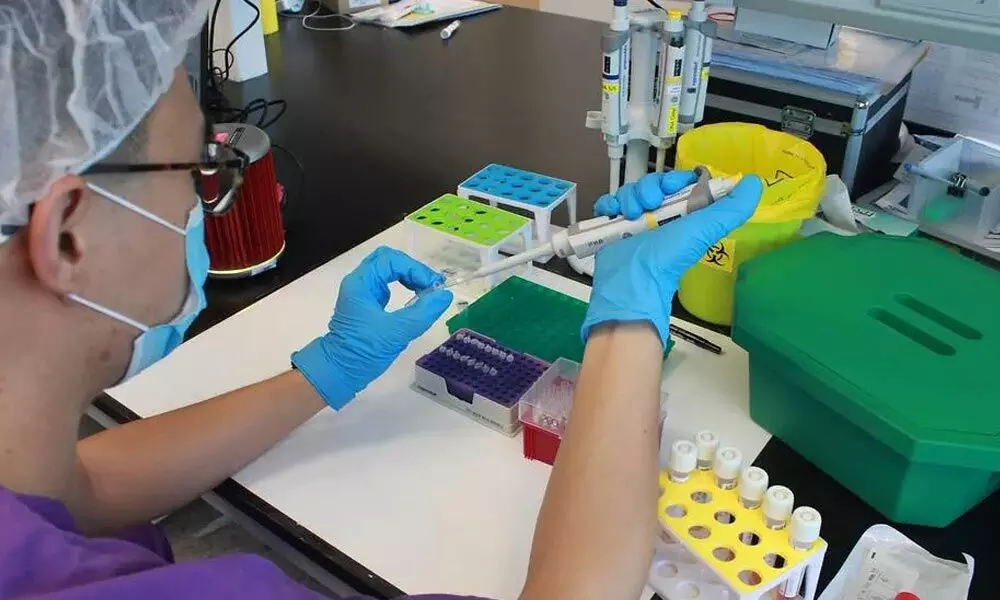Live
- 'Muslims don't vote for JD(U)', says Union Minister Lalan Singh
- St. Joseph’s organises literary fest
- Indian GenAI startups see 6 times surge in funding in Q2
- Revanth is a liar: Errabelli
- Big B pens heartfelt note for Abhishek’s work in latest film: You are Arjun Sen
- BGT 2024-25: India on brink of victory in Perth as Australia reach 227/8 at tea
- SC grants 4 weeks more to Centre to decide Balwant Singh Rajoana’s mercy plea
- Lucky for me to end up with PBKS under head coach Ponting: Stoinis
- Students pay the price for govt apathy
- Naini for new vistas to captivate people
Just In
Singapore scientists develop coronavirus test technique that delivers results in 36 minutes


Coronavirus in Singapore: The current testing method requires highly trained technical staff and can take a few hours before the results are finalized.
Coronavirus in Singapore: Scientists in Singapore have developed a method to improve the speed of obtaining COVID-19 laboratory test results in 36 minutes or by up to four times.
The current testing method requires highly trained technical staff and can take a few hours before the results are finalized.
The new method, developed by scientists at the Nanyang Technological University's (NTC) Lee Kong Chian School of Medicine, has demonstrated a way to improve "the speed, handling time and cost of COVID-19 laboratory tests", the university said on Monday.
The test, which can be done with portable equipment, could also be deployed in the community as a screening tool, it said.
The new method can improve the speed of obtaining COVID-19 laboratory test results in 36 minutes or by up to four times, it said.
Currently, the most sensitive method for COVID-19 testing is through a laboratory technique called polymerase chain reaction (PCR), in which a machine amplifies viral genetic material by copying it over and over again so any trace of the SARS-CoV-2 virus can be detected.
A big bottleneck in sample testing is RNA (ribonucleic acid) purification, separating RNA from other components in the patient sample, a laborious process that requires chemicals that are now in short supply worldwide.
The method developed by NTU LKCMedicine combines many of these steps and allows direct testing on the crude patient sample, cutting down the turnaround time from sample-to-result, and removing the need for RNA purification chemicals.
Details of the new approach were published in the scientific journal Genes in June.
Aside from testing for COVID-19, the same method developed by the NTU LKCMedicine team can also be used to detect other viruses and bacteria, including the dengue virus, which is set to plague Singapore as the country braces itself for one of the worst dengue outbreaks amid the coronavirus pandemic.
Leader of the research team, Associate Professor Eric Yap, who also heads the Microbial Genomics Laboratory, said, "We previously demonstrated that this method works for dengue virus as well. As Singapore battles the dual outbreak of dengue and COVID-19, both with similar early symptoms, our test could help in differentiating between the two infectious diseases."
Professor James Best, Dean of NTU LKCMedicine, said rapid portable screening tools like the one developed by Yap and his team could come in handy at testing sites in the community, allowing for infected patients to be identified quickly, and swift action to be taken to prevent transmission.
As on Sunday, Singapore reported a total of 50,369 cases, the health ministry said.

© 2024 Hyderabad Media House Limited/The Hans India. All rights reserved. Powered by hocalwire.com






